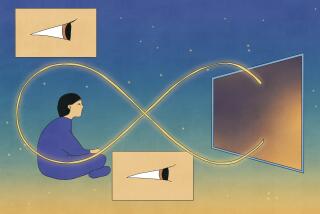Ask the Critic: Robert Lloyd
- Share via
Question: How many episodes of a TV series do you need to watch to get a true feel for it? Does that often complicate writing a review of a new show?
Lloyd: The answer to the first question is, “More than are usually available,” and the answer to the second is, “Yes.” Given that series unfold over time, it’s best to see as many episodes as possible, to get a sense of movement and growth. (I’d prefer to see three at least, but the more the better.)
Yet because a daily paper has an implicit obligation to be timely, and because television production schedules are such that shows are often being finished at the last minute -- or later -- a review will often be written on the basis of a pilot alone. If other episodes are available, they are sometimes only “rough cuts,” lacking final music, effects and the last coat of polish, without which even professional work can look amateurish and the best acting seem flat.
Of course, a show may be so freshly conceived that its merit is obvious from the pilot alone, while others are so patently imitative and bad that one feels confident in saying so. But many series do improve as they go on, as the collaborators begin to understand one another, actors discover and relax into their characters, and writers begin to write to the actors’ strengths. Even a great show is rarely as fine in its first season as in its second or third. Some become different shows altogether.
Because we review at the start of a series rather than at its finish, or even its midpoint, there is always an element of critical compromise. We make allowances, where appropriate, and try to be as fair as possible on the basis of what we can see. But we can’t see the future.
*
Got a question? Go to calendarlive.com/askthecritic to e-mail The Times’ experts on pop music, movies, TV and restaurants, or to browse a free archive of responses.


